TNPSC Books
-
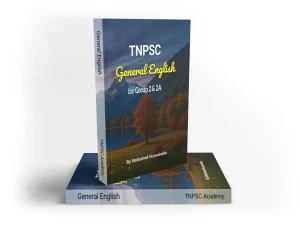 TNPSC General English Book - for Group 2 & 2A
Rated 5.00 out of 5
TNPSC General English Book - for Group 2 & 2A
Rated 5.00 out of 5₹1,000.00Original price was: ₹1,000.00.₹850.00Current price is: ₹850.00. -
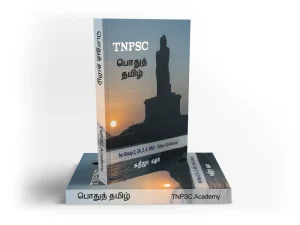 TNPSC பொதுத் தமிழ் Book - for Group 2, 2A, 3, 4 & VAO
TNPSC பொதுத் தமிழ் Book - for Group 2, 2A, 3, 4 & VAO
₹1,000.00Original price was: ₹1,000.00.₹850.00Current price is: ₹850.00.
Group 1 Courses
TNPSC Group 1 - Test Series - 2019
4.7₹3,500.00Original price was: ₹3,500.00.₹2,800.00Current price is: ₹2,800.00. 542Group 1 | Postal and Online Test Series | 2022
₹3,200.00Original price was: ₹3,200.00.₹2,800.00Current price is: ₹2,800.00. 88
Group 2 & 2A Courses
TNPSC Group 2 and 2A - Test Series - 2019
₹2,400.00Original price was: ₹2,400.00.₹1,800.00Current price is: ₹1,800.00. 527TNPSC Group 2 and 2A - Test Series - 2019 - தமிழ்
₹2,400.00Original price was: ₹2,400.00.₹1,800.00Current price is: ₹1,800.00. 175

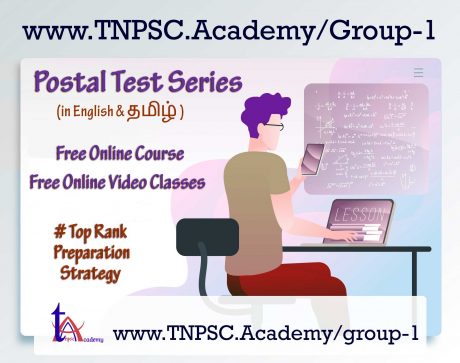
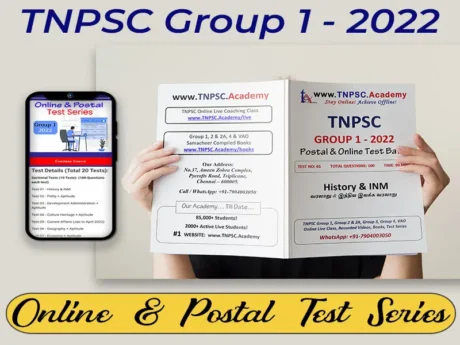
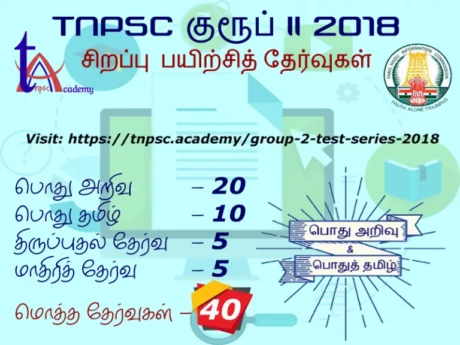
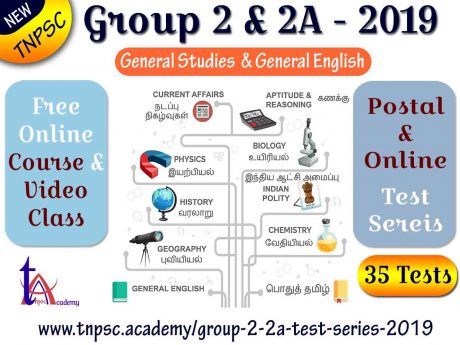
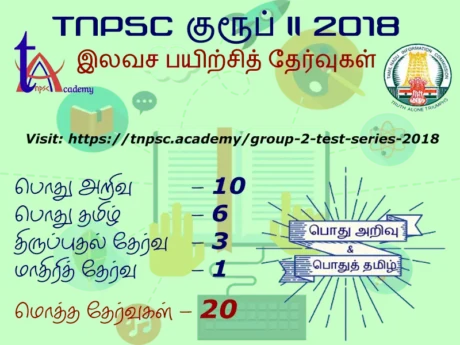
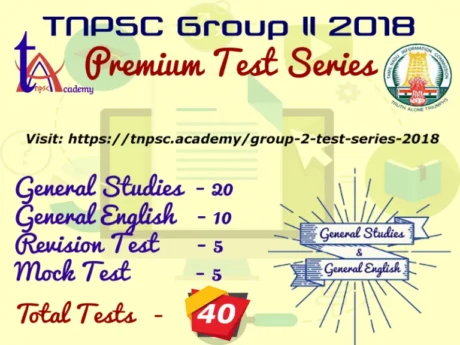
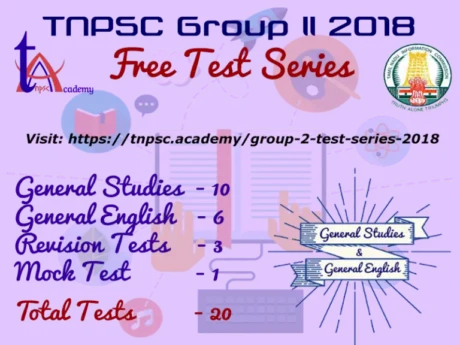

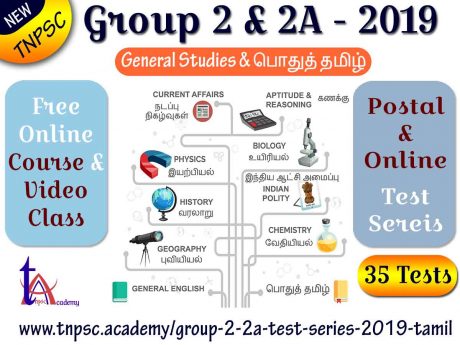
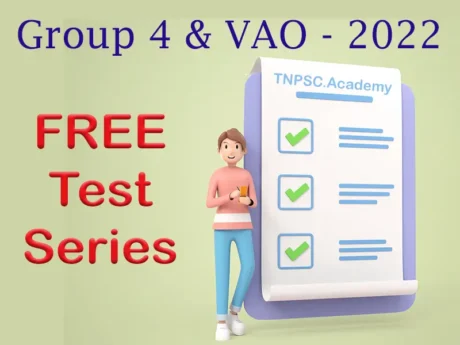
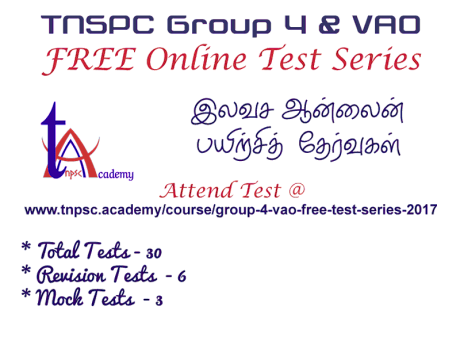
Verb is a word used to express an action or state.
Examples: (underlined words are verbs)
The boy wrote a letter to his brother.
Chennai is a big city.
Iron and Copper areuseful metals.
A Verb may tell us –
1. What a person or thing does:
Hari laughs. The clock strikes.
2. What is done to a person or thing:
Hari is scolded. The window is broken.
3. What a person or thing is:
The cat is dead. Glass is brittle. I feel sorry.
Read the following sentences.
Set 1
1. The young seagull uttered a joyful scream. (adjective)
2. The young seagull screamed with joy. (noun)
3. The young seagull screamed joyfully. (adverb)
Set 2
1. The young bird pretended to be falling asleep. (verb)
2. The young bird made a pretension of falling asleep. (noun)
3. The young bird made a pretentious posture of falling asleep. (adjective)
Note that in the Set 1, the adjective ‘joyful’ is changed to its noun form ‘joy’ and to its adverb form ‘joyfully’.
In the Set 2, the verb ‘pretend’ has been transformed to its noun form ‘pretension’ and to its adjective form ‘pretentious’.
We can transform a sentence by interchanging parts of speech without changing its meaning.
Change the parts of speech of the given words in the chart.
Noun
Verb
Adjective
Adverb
exhaustion
exhausted
exhausting
exhaustingly/exhaustively
width
widen
wide
widely
madness
madded
mad
madly
perfection
perfect / perfects
perfect
perfectly
Exercise with Answers:
1. Fill in the blanks with am/is/ are as appropriate.
1. Hi! I ____ Tarun. 2. How _____ you, Tarun?
3. What ____ your seat number, Tarun? 4. We ______ flying to Madurai.
5. I ____ staying at Madurai with Tarun. 6. Tarun and I _____ staying in Madurai.
7. We _____ from the same city. 8. I ____ fine, thank you.
9. You _____ living in Chennai. 10. You _____ Tarun’s friend.
Answers:
1. am 2. are 3. is 4. are 5. am 6. are 7. are 8. am 9. are 10. are
2. Read the following sentences and change the form of the underlined words as directed.
1. His family was screaming and offering him food. (to adjective)
2. The young seagull gave out a loud call. (to adverb)
3. The bird cackled amusedly while flying. (to noun)
4. The depth of the sea from the ledge scared the seagull. (to adjective)
5. The successful flight of the bird was a proud moment for the seagull’s family. (to verb)
Answer:
1. His screaming family was offering him food.
2. The young sea gull called out loudly.
3. The bird cackled with amusement while flying.
4. The deep sea scared the seagull on the ledge.
5. It was a proud moment for the seagull’s family when the bird flew successfully.
3. Choose the correct option from the list given in the bracket.
1. ________________ Tamil movies? (Does you likes, Do you likes, Do you like)
2. ________________ online games. (She hates, She hating, She hate)
3. ________________ to Chithra’s songs. (I often listened, I often listen, I often listens)
4. ________________ the best. (Horror movies are, Horror movies is, Horror movies)
5. ________________ another hobby of her. (Reading was, Reading are, Reading is)
6. ________________this canvas to spend your time. (You paints, You paint, You painting)
7. ________________ mamallapuram very much. (They liking, They likes, They like)
8. ________________ hot weather. (Kaviya and I dislike, Kaviya and I dislikes, Kaviya and I disliking)
9. ________________ roses and daisies. (My favorite flowers, My favorite flowers are, My favorite flowers is)
10. ________________ Kanyakumari very much. (We do like, We does like, We do likes)
Answers:
1. Do you like
2. She hates
3. I often listen
4. Horror movies are
5. Reading is
6. You paint
7. They like
8. Kaviya and I dislike
9. My favourite flowers are
10. We do like
General English Book
TNPSC Group 2 & 2A - Buy Now!
Online Class + Books + Tests
More Details
Nominalisation
The term “nominalisation” refers to the process of producing a noun from another part of speech by adding a derivational affix. A grammatical expression is turned into a noun phrase when we nominalise a sentence. For example,
(A) After 1885, trade with Europe grew. (Verb)
(B) After 1885, there was a growth in trade with Europe. (Noun)
In sentence B, we have used the word ‘growth’ which is the noun form of the verb ‘grow’ by adding the suffix ‘th’.
Nominalisation can be done in three different ways.
1. We can add suffixes like -ment, -tion, -sion, -ness, -ation, -ity, -al to verbs and adjectives.
Examples:
admire – admiration
arrive – arrival
careless – carelessness
fail – failure
include – inclusion
intense – intensity
punish – punishment
2. Some words are turned into nouns without any adding suffix.
Examples:
bleed – blood
lose – loss
prove – proof
sell – sale
speak – speech
3. Some words do not undergo any change when they are used as nouns.
Examples:
attempt – attempt
change – change
control – control
desire – desire
escape – escape
More examples:
We have learnt how we derive noun forms from verbs and adjectives. Now, let us transform complete sentences by converting verbs and adjectives into nouns. In this process, we nominalise them, without changing the meaning of the given sentences.
1. He decided to turn down her request.
He made a decision to turn down her request.
2. The team members reviewed the matter. It helped them solve the problem.
The review of the matter by the team members helped them solve the problem.
Exercise with Answers:
1. Write the noun forms of the following words.
1. beautiful
2. breathe
3. enter
4. know
5. deafen
6. zealous
7. familiar
8. accept
9. dangerous
Answers:
1. beautiful → beauty
2. breathe → breath
3. enter → entrance
4. know → knowledge
5. deafen → deafness
6. zealous → zeal
7. familiar → familiarity
8. accept → acceptance
9. dangerous → danger
2. Link the words with a suffix to make Nouns. Make the necessary changes. One has been done for you.
-er -ship -ance -th -ation -ness -ity -sion -ion -ment -age -al -cy -ry -ence
Example: refuse – al – refusal
Answers:
Sl.No
Word
Suffix
Noun
1
refuse
al
refusal
2
decide
sion
decision
3
teach
er
teacher
4
transform
ation
transformation
5
weak
ness
weakness
6
infect
ion
infection
7
assist
ance
assistance
8
argue
ment
argument
9
urgent
cy
urgency
10
occur
ence
occurrence
11
marry
age
marriage
12
secure
ity
security
13
friend
ship
friendship
14
true
th
truth
15
minister
ry
ministry
3. Write the adjective of the below words. One example is done.
Example: Surprise – Surprised
Rain Friend Colour Care China Differ
Nature Respect Act Republic Child Danger
Bore Magnet
Answers:
1. Surprise → Surprised
2. Rain → Rainy
3. Friend → Friendly
4. Colour → Colourful / Coloured
5. Care → Careful / Careless
6. China → Chinese
7. Differ → Different
8. Nature → Natural
9. Respect → Respectful
10. Act → Active / Actual
11. Republic → Republican
12. Child → Childish
13. Danger → Dangerous
14. Bore → Boring / Bored
15. Magnet → Magnetic
4. Complete the following sentences using the noun form of the words given in brackets
1. The boy had to give a proper __________ for being late. (explain)
2. They could make __________ about the future. (predict)
3. At one point in life, he had no __________ but to trust his friend. (choose)
4. The monuments are to be preserved because of their historical __________. (significant)
5. It is very difficult to work with so many __________ . (distract)
Answers:
1. explanation 2. predictions 3. choice
4. significance 5. Distractions
5. Rewrite the sentences nominalising the underlined words. The first one has been done for you.
Ex: Students work diligently to score well in exams.
Students work with diligence to score well in exams.
1. We succeeded in our attempt. 2. Nalini leads a happy life.
3. She failed and it disappointed her. 4. India became an independent country in the year 1947.
5. The child resembles her father.
Answers
1. Our attempt was a success.
2. Nalini’s life is lead with happiness.
3. Her failure was a disappointment to her.
4. In the year 1947, our country got its independence.
5. The child has resemblance to her father.
6. Complete the sentences in the paragraph using the appropriate form of words given in brackets.
1. My sister wanted to go to Mumbai last week. She made a __________ (decide) to buy a ticket at once. As __________ (reserve) could be done online, she gave __________ (prefer) to book a ticket that way. First, she collected __________ (inform) about the __________ (arrive) and __________ (depart) of trains and airplanes.
2. A few days later, Androcles was captured by his master. He had to suffer all kinds of __________ (punish). At last, he was thrown to a lion which was in great __________ (hungry). It had been kept in an __________ (enclose) and had not been fed for several days. His friends stood there with __________ (tear) eyes as the lion rushed towards him. The lion stopped near him and stood for a while __________ (look) at him. Then it lay down by his side like a pet dog. __________ (obvious), the lion recognized Androcles and the __________ (help) he had given it.
Answers:
1. decision, reservation, preference, information, arrival, departure
2. punishment, hunger, enclosure, tearful, looking, Obviously, help
7. Fill in the blanks with the correct noun form of the word given in brackets.
E.g.: This chair is of great comfort. (comfortable)
1.The crisis will affect every ________. (national)
2.The ________ of the old man is the talk of the town. (generous)
3.In our ________ we were very active and enthusiastic. (young)
Answers:
1. nation 2. generosity 3. youth
8. Rewrite the sentences with the noun form of the verb underlined. One has been done for you.
E.g. We evaluated the results.
The evaluation of the results was done by us.
1.Define a business strategy.
2.Identify the nouns, it is an important exercise.
3.This article costs Rs.100.
Answers:
1. The definition of a business strategy is required.
2. The identification of nouns is an important exercise.
3. The cost of this article is Rs.100.
9. Fill in the blanks with the verb form of the noun given within brackets:
E.g. He admires (admiration) nature.
1.Jane ____ (reply) curtly.
2.This movie does not ____ (amusement) me.
3.Your answer ____ (difference) from mine.
Answers:
1. replied 2. amuse 3. differs
10. Complete the following passage by filling in with the right form of the words given in brackets.
Everyone wants to have friends, but building a new (1) ______ (relate) is not always easy. A few people are born with outgoing (2) ______ (personal); they have a natural (3) ______ (able) to make new friends wherever they go. But not many people are (4) ______ (complete) at ease in a room full of strangers. Most of us feel (5) ______ (nerve) when we meet new people, and this can occasionally make us appear (6) ______ (friend) when in fact we are just shy. In any case, the (7) ______ (develop) of new friendships is a gradual process – it doesn’t just happen overnight. Long-standing friendships (8) ______ (general) have several things in common. The friends enjoy the same sorts of (9) ______ (active) and share similar beliefs and values, they are (10) ______ (honest) with one another and have similar (11) ______ (expect). They (12) ______ (confidence) in each other, when they have problems. Friends never share a (13) ______ (bore) time with one another and are usually very (14) ______ (appreciate) of each other. It (15) ____ (appears) that some are friends because they seem to share a similar taste. Having close friends helps you gain (16) ______ (strong) in terms of (17) ______ (confide). In order to be a (18) ______ (truth) friend there are a few (19) ______ (require)such as (20) ______ (tolerant) and patience.
Answers:
(1) relationship
(2) personalities
(3) ability
(4) completely
(5) nervous
(6) unfriendly
(7) development
(8) generally
(9) activities
(10) honest
(11) expectations
(12) confide
(13) boring
(14) appreciative
(15) appears
(16) strength
(17) confidence
(18) true
(19) requirements
(20) tolerance
General English Book
TNPSC Group 2 & 2A - Buy Now!
Online Class + Books + Tests
More Details